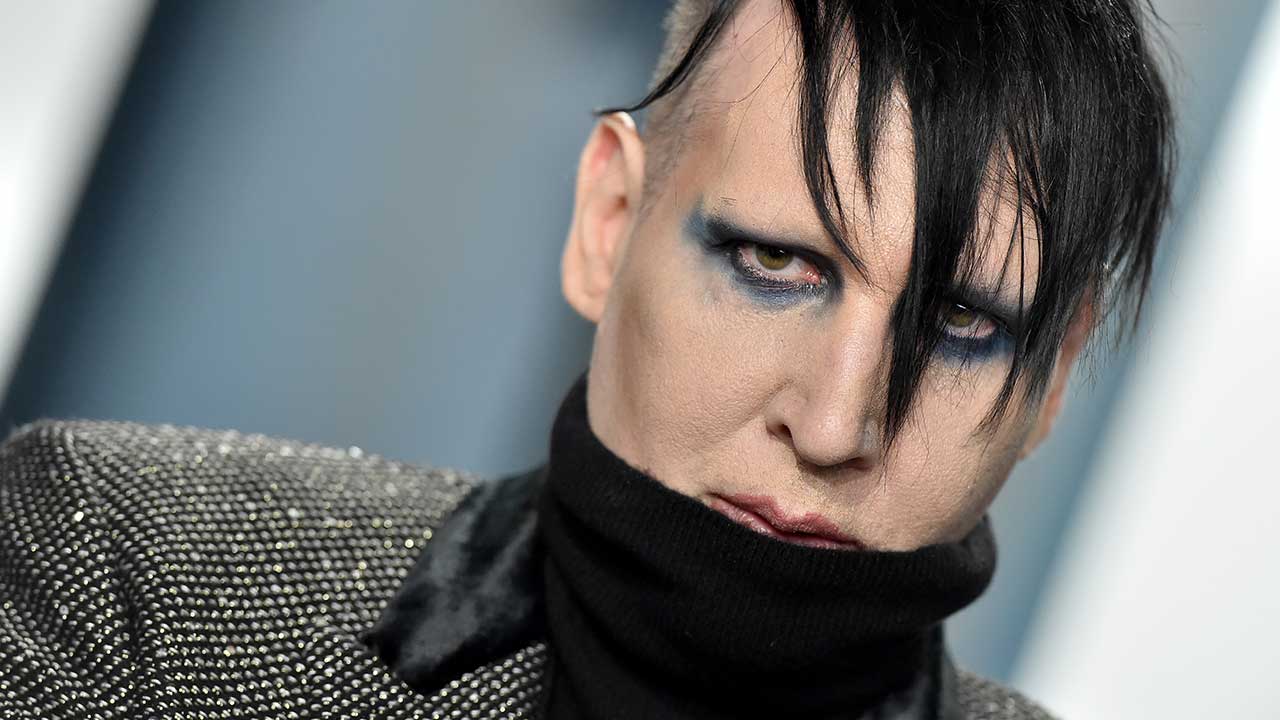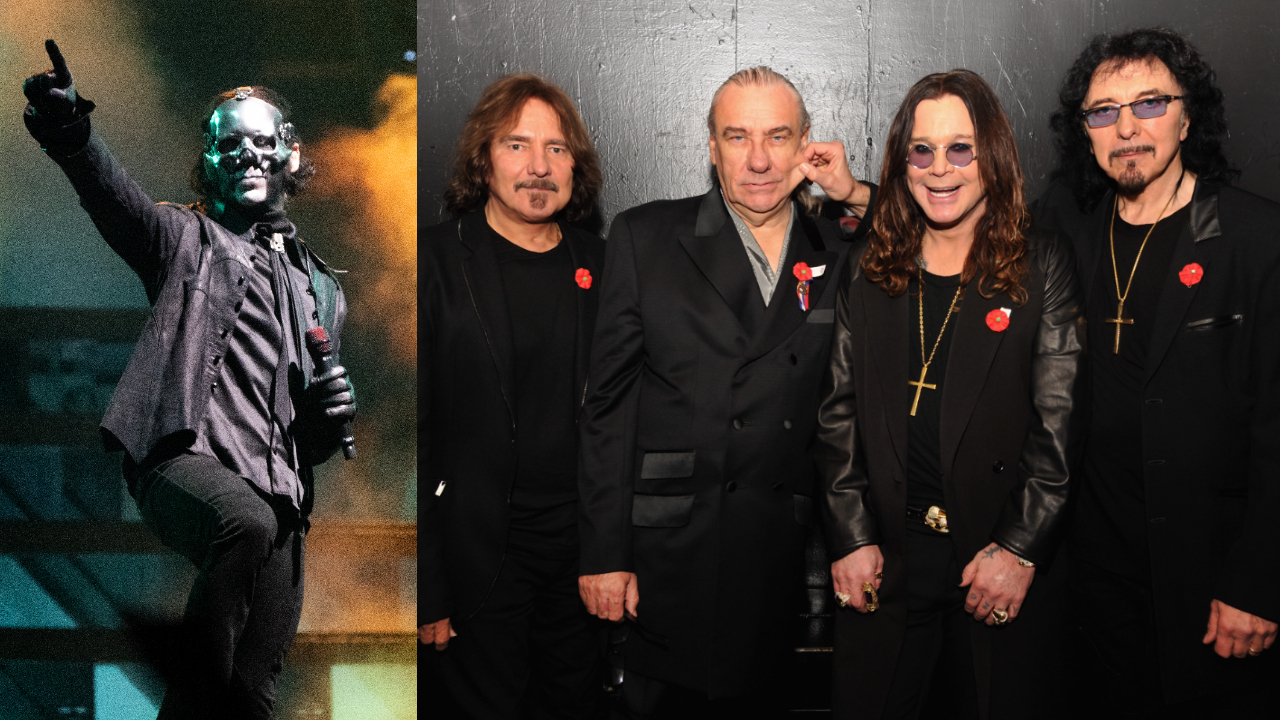Marilyn Manson's Grammy nomination shows why our musical gatekeepers can't be trusted
Marilyn Manson has been included in this year's Grammy nominations via his contribution to Kanye West's song Jail, proving how little progress we've made when it comes to convincing the industry to care about abuse

Back in 2012, Chris Brown appeared at the Grammys. While his appearance itself wasn’t particularly out of the ordinary – he was a popular mainstream artist with an album nominated that year – the timing of his appearance, as well as his recent criminal history, caused a small uproar.
Exactly three years earlier, on the eve of the 2009 Grammys, Brown brutally assaulted his then-partner Rihanna. The assault resulted in a photo of Rihanna with a bruised, bloodied and swollen face quickly going viral. Brown was subsequently charged with felony assault, sentenced to five years of probation, one year of domestic violence counselling and 180 days of community service. Rihanna was granted a restraining order which meant Brown was not allowed to contact her or go within 50 yards of her in public. In 2011, at Rihanna's request, that restriction was reduced to 10 yards if the pair were both at a music industry event.
Coincidentally, the following year, having largely kept his head down – save for the odd violent tantrum should anyone mention his attack on Rihanna – Brown was back in the Grammys fold. He made three appearances in total over the course of the evening, winning best R&B album, performing a new single and opening a dance tribute to Don Cornelius. His rehabilitation into the music industry was complete.
But fans and critics were rapid in their condemnation of the Grammys’ decision to give Brown such a prominent role at the ceremony. The Washington Post ran an op ed which stated that while people deserve second chances, “That doesn’t mean they deserve a chance to strut around the Grammy stage a few years after being convicted of felony assault,” while The Atlantic’s Jeffrey Goldberg tweeted: “I don’t look for the Grammys for moral clarity, but, really? Do the words ‘felony assault’ mean anything at all?”
The Grammys’ response was telling. “That’s really where the judgment comes from: music professionals listening to the music of other professionals,” said Neil Portnow, then president of The Recording Academy. “Clearly, our voting membership rated highly Chris’ musical work this past year. If we’re going to get in trying to personally evaluate artists in terms of their personal lives, that’s a slippery slope that we wouldn’t want to get into.”
Elsewhere, Grammy producer Ken Ehrlich went on the record saying he was “kind of rooting” for Brown, telling CBS that “I just believe people deserve a second chance. The year he had this year, really brought him back into the public. He really deserved a second chance.”
Why is any of this relevant? Well, a whole decade on, the Grammys have just released the latest raft of nominations for their 2022 awards. Among them is Kanye West’s song Jail, which has been nominated for Best Rap Song, and on which Marilyn Manson contributes a sarcastic chorus about being sent to prison. Manson is currently tied up in multiple lawsuits accusing him of rape, sexual battery, human trafficking and unlawful imprisonment, among other things.
Sign up below to get the latest from Metal Hammer, plus exclusive special offers, direct to your inbox!
Just like with Brown’s Grammy comeback, many have raised questions about whether or not Manson’s nod, at a time when he is facing multiple lawsuits for grievous crimes against women, is entirely appropriate. When questioned on this by The Wrap, Recording Academy CEO Harvey Mason Jr – a record producer who has, incidentally, previously written and produced songs for Chris Brown – issued a familiar-sounding statement: “We won’t restrict the people who can submit their material for consideration. We won’t look back at people’s history, we won’t look at their criminal record, we won’t look at anything other than the legality within our rules of, is this recording for this work eligible based on date and other criteria. If it is, they can submit for consideration.
“What we will control is our stages, our shows, our events, our red carpets. We’ll take a look at anyone who is asking to be a part of that, asking to be in attendance, and we’ll make our decisions at that point. We’re not going to be in the business of restricting people from submitting their work for our voters to decide on.”
It’s very convenient for the Grammys to subtly absolve themselves of responsibility, implying that their hands are tied but that they’ll do their best to control the parts they can, but that is, frankly, bullshit. The Grammys are in charge of who can and can’t be included within their criteria – they literally make the rules. To suggest that they can’t or shouldn’t restrict nominations for people based on their criminal history – specifically when that criminal history involves harming other humans – is just an excuse. What they’re really saying is that they don’t want to. They genuinely just don't really give a shit.
The Grammys have had a decade to reflect on the backlash they received for platforming a convicted abuser. Instead, they’re offering the exact same weak defence as they did 10 years ago, seemingly unmoved by the major cultural changes we’ve seen unfold within the entertainment industry in the last few years. The Grammys have historically been a hugely influential institution within the music industry. Whether they like it or not, they still play a big part in communicating to a vast audience who and what should be celebrated within that industry – who we value, who we don’t. What would happen if they actually started holding themselves accountable for that? What would happen if they did the same to the artists they’re platforming?
A common misconception since #MeToo and other similar movements highlighted the widespread abuse of women within the entertainment industry and beyond is that these movements want to see men permanently cast aside by society – or, what has more commonly become known as ‘cancel culture’. Beyond the various debates over whether cancel culture actually exists – and the ongoing involvement of both Brown and Manson within one of the music industry’s biggest institutions would suggest it doesn’t, at least not in the way many people imagine it to – this isn’t an accurate representation of what those movements want.
What those movements are asking for is accountability and progress; for the systems that have for so long facilitated this abuse to change. When Brown was embraced by the Grammys again, he had done very little to suggest he’d engaged in much personal growth – in fact, the album he released in 2011 was called F.A.M.E (Forgiving All My Enemies), a title which seemed to somehow frame himself as a victim – a tactic plucked straight from the abuser handbook. Incidentally, Brown has accumulated a laundry list of violent charges since 2012, including assaulting a fan in 2013, assault and battery with a deadly weapon in 2016, a rape accusation in 2019 and, as recently as June of this year, he was investigated for beating a woman at an LA residence. Was that the second chance the Grammy organisers were hoping for?
Manson, meanwhile, has made no efforts towards accountability. The very first step of accountability comes with accepting responsibility for what you’ve done wrong and to those you’ve hurt. At the time of writing, Manson still strenuously denies all claims made against him. His legal team have released statements dismissing the women, claiming their lawsuits against him are “provably false”. However, his team have also recently indicated that they’re looking to settle those lawsuits rather than take them through court. At best, the cases are ongoing and messy. It’s reasonable to suggest it might not be the right time for accolades to be chucked at him.
It’s absolutely fair to state that stars who have transgressed deserve a second chance, but those second chances can’t be unconditional. They need to be backed up by visible growth and accountability – both personal and systemic. When Brown’s public Grammys rehabilitation took place, Rita Smith, then executive director of the National Coalition Against Domestic Violence, pointed out that “if an awards show is going to highlight an artist, what an awesome message they could send if we got an update somehow about how that artist had changed in a positive way. Otherwise, the message becomes ‘wait for a period of time and go on with business as usual.’”
Another misconception about ‘cancel culture’ is that it’s driven out of a punitive spite for men that wants to see them punished or humiliated. In reality, asking for accountability is about the women those men pose a threat to. By refusing to demand better from violent or abusive men, by turning a blind eye and affording them grace despite very little evidence to suggest their behaviour has changed, it sends a message to them – and society more broadly – that their behaviour is okay. It’s women who suffer from that messaging. Handing out second chances to men who have made no efforts to modify their behaviour is just handing them a licence to do it again.
The Grammys have a track record of getting things wrong, and this latest episode is greater evidence, if we needed it, that their relevancy in a rapidly evolving climate is waning. The conversation, and what people are willing to accept from performers, has changed. But still, the men at the top of the organisation – and the industry more broadly – continue to shun their responsibility to interrogate their processes and do better. Until they do, the conversation is going to move on without them.
Briony is the Editor in Chief of Louder and is in charge of sorting out who and what you see covered on the site. She started working with Metal Hammer, Classic Rock and Prog magazines back in 2015 and has been writing about music and entertainment in many guises since 2009. Her favourite-ever interviewee is either Billy Corgan or Kim Deal. She is a big fan of cats, Husker Du and pizza.

